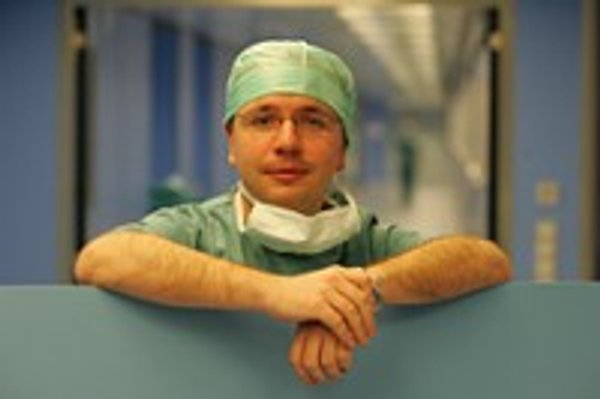The catastrophe in Haitian is the 5th such international aid project for Dr. Alberto Lafuente Jimenez, an anaesthesiologist at the University Clinic of Navarra (https://www.cun.es). The others include the Afghanistan war disaster relief, the earthquakes in Pakistan (October 2005), and two others in Indonesia (the tsunami relief in June 2006 and the earthquake of September 2009).
Despite his experience, the situation in Haiti has shocked him. “I can say that it has been the worst that I've seen in my life (...) It really is the most gruesome I’ve seen, though I think the volunteers who have come from Spain are taking it very well – with great dignity.”

Work shifts of 12 gruelling hours, canned food, the heat and the precariousness of the entire situation rapidly wear out those deployed to Haiti. However, Dr. Lafuente is ever positive and emphasizes that “what we are doing for all these people is worth the effort. If we fail to give a little of ourselves to the people of Haiti who are suffering in this way, there isn't much reason to have become a doctor, or anything else.”
Supplies, security and wounds
For aid-workers, there was no problem with water supplies and electricity, but the supply for the population is becoming scarce. “Little by little, they are trying to get essential supplies to the entire population, although it’s difficult, because this country has really become dysfunctional, on top to the situation of absolute poverty before the earthquake," describes Dr. Lafuente.

However, he is positive, “We’re helping many people, and we are very well and very enthusiastic with the work we are able to do.” As for the safety of the volunteers, he said, “We are quite safe because there are obvious security measures in countries in a situation like this. There is protection at all times from the troops of the UN.”
The Spanish medical team, said Dr. Lafuente, has focused on one of the three hospitals that have been left standing from the ten existing before the earthquake. He notes that the Spanish contingent was among the first to arrive, right after the Americans. They have been working to get the hospital going again. After installing an operating room with the material brought from Spain, they were operating from day one of their arrival.
The most frequent treatment was for “very, very open and infected injuries, in some cases, even with worm infestations due to the advanced stage of putrefaction.” In such cases, “what we were doing was to amputate the affected limb and administer antibiotics so that the infection would not escalate and produce sepsis.” Furthermore, Dr. Lafuente was assisting in Caesarean deliveries, “since, due to the stress, and despite the situation, children were being born.”
Dr Lafuente also appreciates the help of AECI (Spanish Agency of International Cooperation for Development) that depends on the Ministry of Foreign Affairs. He tells us that it is doing a good job, and one of its leaders, Pablo Yusto, was present everyday, “encouraging, organizing and coordinating everything very quickly”. They have been able to reach out in solidarity with the Haitian people.
